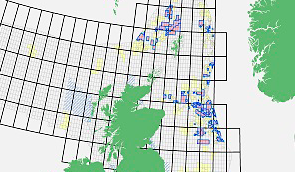North Sea decommissioning work offers a “significant opportunity” with £21 billion of spending forecast in the next decade, according to the UK’s North Sea Transition Authority (NSTA).
The NSTA said 70% of decommissioning work will go to the UK domestic supply chain, based on plans submitted in 2022.
The North Sea oil and gas industry spent £1.6 billion decommissioning redundant wells and infrastructure last year, more than in any of the previous five years, new figures show.
The latest NSTA Decommissioning Cost and Performance Report reveals that the decommissioning industry spent a total of around £8 billion from 2017 to 2022.
Decommissioning activity levels are expected to remain high, with about £2 billion a year forecast to be spent on decommissioning in the next decade.
UK suppliers are in line to secure around 70% of the work associated with UK North Sea decommissioning projects listed in Supply Chain Action Plans (SCAPs) lodged with the NSTA last year.
The NSTA said: “Achieving further improvements will be challenging, however, in the face of factors including heightened demand for equipment, vessels and services from other regions and sectors, such as offshore wind – which have pushed up prices, taking the total cost estimate for decommissioning to £40 billion.
“The NSTA is confident that industry can overcome these hurdles and meet its cost-efficiency target – lowering the estimate to £33.3 billion by end-2028.
“However, operators must strive to deliver their agreed schedules and commitments, work even more collaboratively with the supply chain and share their plans earlier, ensuring resources are available at the right time.
“The NSTA is providing ongoing support by introducing new key performance indicators and benchmarks – developed with industry and underpinned by the collection of new datasets, including the length of time taken to complete specific tasks, the number of crew members employed, and the types of vessels used.
“The new metrics will provide a more complete picture of how well decommissioning projects are being planned and executed, helping identify opportunities for industry to improve its overall performance and realise cost efficiencies.
“This complements the NSTA’s existing efforts to support the sector by sharing best practice, setting clear expectations on well decommissioning deadlines, and encouraging operators to repurpose oil and gas infrastructure for energy transition projects.”
Pauline Innes, NSTA Director of Supply Chain and Decommissioning, said: “The North Sea decommissioning sector is highly active and productive, and the industry is ideally placed to realise the massive £21 billion opportunity which will come its way over the next 10 years.
“However, operators must redouble their commitment to collaborate with the supply chain and plan even more effectively if they are to overcome challenging market conditions and remain competitive on cost.
“The NSTA will continue to use its powers and influence to support the industry as it strives for continuous improvement, including through the development of new benchmarks.”
